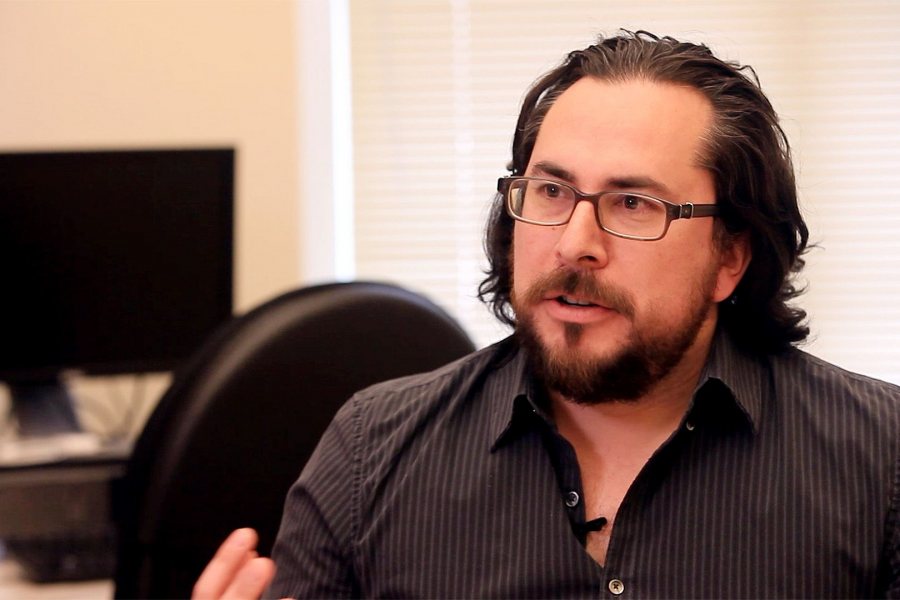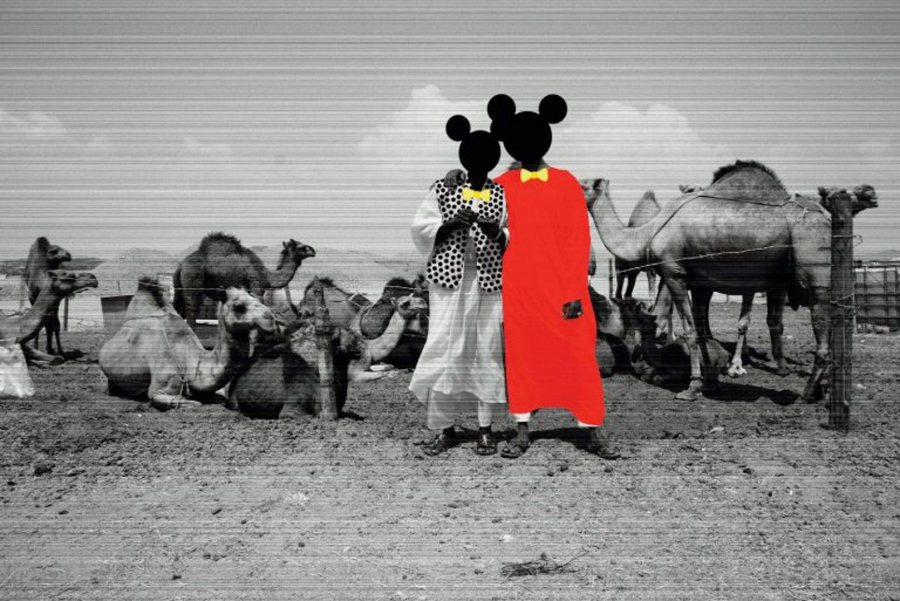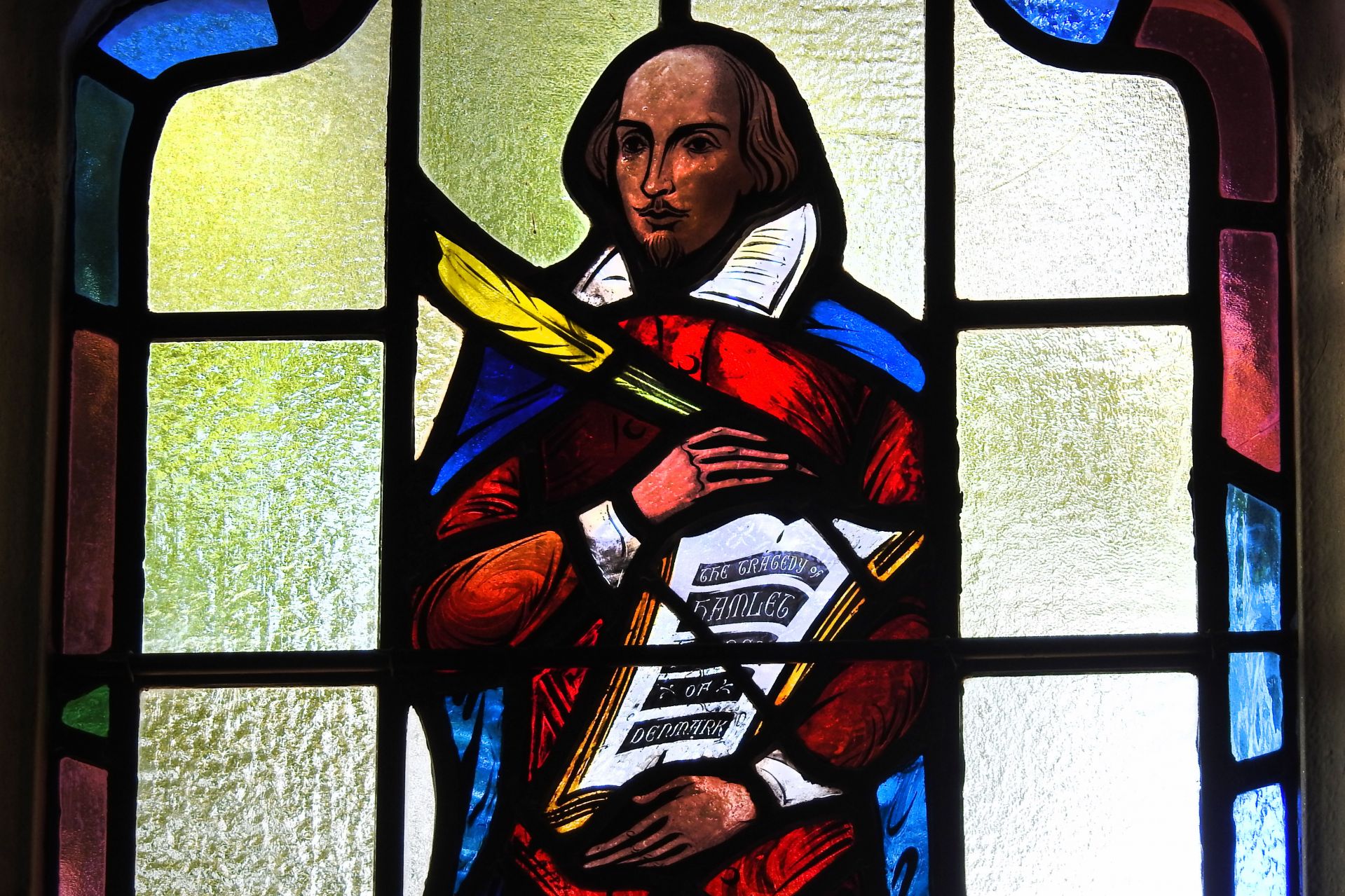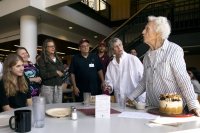
Bates in the News: Dec. 9, 2016
Jason Castro
A ‘Scientist to Watch,’ Castro uses science to make connections with people — The Scientist
The featured “Scientist to Watch” in the November 2016 issue of The Scientist magazine, Assistant Professor of Neuroscience Jason Castro says he came to Bates to “do the science equivalent of running a mom-and-pop — a small operation, working closely with students, and staying close to the data and the experiments myself.”

Assistant Professor of Neuroscience Jason Castro is a “Scientist to Watch,” says The Scientist magazine.
Writer Ben Andrew Henry points out that “in setting up shop at a small college, Castro did not sacrifice scientific ambition,” highlighting Castro’s recent National Science Foundation Faculty Early Career Development Grant, “a recognition usually awarded to researchers at larger universities.”
“I’m certainly able to do the science I want to do,” Castro says.
Elizabeth Strout ’77
Time alone is hard, but perhaps necessary, for a writer — Pittsburgh Post-Gazette
Speaking with the Pittsburgh Post-Gazette on the eve of a Dec. 5 speaking appearance, Pulitzer Prize–winning author Elizabeth Strout ’77 talks about her childhood and having “an awful lot of time alone as a child,” which, she believes, is “very important for a writer. I lived in my head and wrote things down.”
Reporter Anya Sostek also describes Strout’s creative process, which involves scraps of a paper and a table. “She writes scenes on scraps of paper,” Sostek reports, most of which end up on the floor. But “when she writes enough scenes ‘that have some life, where there’s a heartbeat to them,’ she starts to arrange them on the table like puzzle pieces.”
Eventually, says Strout, at “a period of time when I feel overwhelmed,” those scraps become a book.
Postell Pringle ’98 and Greg Qaiyum ’98
He’s a “commanding, virile” hip-hop Othello, a “noble heart corrupted” — The New York Times
Othello: The Remix, with Postell Pringle ’98 in the title roll and Greg Qaiyum ’98 its co-creator, “conforms broadly to the original” but is “continually infused with impish humor,” notes a glowing review by The New York Times’ Charles Isherwood.
The production got rave reviews during its Chicago run in 2013, when it also played at the Cook County jail, earning coverage from NBC News.

In Chicago Shakespeare Theater’s production of Othello: The Remix, Postell Pringle ’98 (left, as Othello) and GQ (Iago) face off as Iago’s plot unfolds. (Photograph by Michael Brosilow)
The adaptation “conforms broadly to the original,” notes the Times review, but is “continually infused with impish humor; it’s as much a spoof of Othello as it is a serious attempt to translate the play into a contemporary musical idiom.”
Othello here “is a musical eminence at the top of his fame and his game (think Jay Z),” writes reviewer Mr. Pringle is a commanding, virile presence. His transformation, under Iago’s manipulation, into a monster of sexual insecurity doesn’t carry the dramatic force it does in the original, but we do see clearly noble heart corrupted.”
The production is by the Q Brothers, whose creative directors are GQ (Greg Qaiyum ’98) and JQ (his brother, Jeffrey). Pringle is the director of choreography.
In a recent interview with Electronic Urban Report, Pringle says that the most challenging part of the role is “probably getting raw and honest with the depths of this character’s feelings,” not to mention “the roller coaster ride which he has portraying love and betrayal and hate and confusion.”
That’s a “huge range of emotions in an 80-minute span of time.”
Clayton Spencer
Bates joins national bid to defend undocumented students — Lewiston Sun Journal
A Lewiston Sun Journal story on Nov. 23 reported President Spencer’s joining with other college presidents to sign a letter to President-elect Donald Trump urging the continuation and expansion of the Deferred Action for Childhood Arrivals (DACA) program.
“We stand ready to defend the rights of any and all of our students.”
Spencer tells the Sun Journal that Bates “has maintained an unwavering commitment to recruiting students regardless of gender, race, religion, economic background or family circumstance” since the college’s 1855 founding.
“By adding our voice to this important issue,” she says, “we continue to honor this mission and we stand ready to defend the rights of any and all of our students to pursue their educational goals.”
In a Nov. 30 statement to the Bates community, Spencer discusses the college’s DACA policy in the context of “a set of actions we have taken to speak out against any present or potential encroachment on the rights of individuals in our community or values central to the Bates mission.”
Margaret Creighton
A World’s Fair that hoped to show the superiority of a Caucasian way of life — The Wall Street Journal (paywall)
Buffalo’s hosting of the 1901 Pan-American Exposition “seemed like a good idea at the time,” writes Wall Street Journal reviewer Howard Schneider. “Alas, it didn’t turn out the way it was supposed to: The fair was afflicted by complications, including the worst complication of all — the murder of a president,” William McKinley.
That and more is the substance of Professor of History Margaret Creighton’s new book, The Electrifying Fall of Rainbow City: Spectacle and Assassination at the 1901 World’s Fair.
Schneider calls the book a “deft, thorough account of how the exposition and its home city became the victims of wretched luck” and how the fair “was a microcosm of some momentous facets of the United States, good and bad” of the time, including how the country hoped to “demonstrate the superiority of Caucasian, specifically American Caucasian, attributes and culture.”
Bates Museum of Art
An exhibit that transcends differences and offers new perspectives — Vogue Arabia
Vogue Arabia talks to Dan Mills, director of the Bates Museum of Art, and Loring Danforth, Dana Professor of Anthropology, co-curators of Phantom Punch, the museum exhibition featuring contemporary Saudi Arabian artists.
“The exhibition aims to promote cross-cultural communication, understanding, and appreciation,” said Danforth. “It is through projects like this that we are able to transcend the real differences that separate us; draw on the equally real shared values that unite us and allow us to move toward a world with less hatred, conflict, and violence.”
In America, “very little is known about contemporary Saudi art and artists,” Mills said. “With this exhibition, we have a rare opportunity to gain critical new perspectives on Saudi society and culture from a group of perceptive young artists.”





